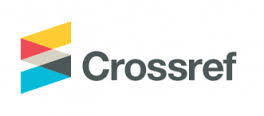The Role of Financial Culture in Developing Entrepreneurial and Innovative Thinking among Primary School Students from the Perspective of National and Civic Education Teachers in Al-Mafraq
DOI:
https://doi.org/10.59759/educational.v3i4.853Keywords:
Financial Culture, Entrepreneurial Thinking,, Innovative ThinkingAbstract
The study aimed to explore the role of financial culture in fostering entrepreneurial and innovative thinking among primary school students., it as well sought to analyze and evaluate the effectiveness of financial culture in stimulating and developing innovative thinking skills. Moreover, it aimed to understand the impact of financial culture on fostering entrepreneurial and innovative thinking among primary school students from the perspective of national and civic education teachers in Al-Mafraq. The study utilized the quantitative approach to understand the role of financial culture in fostering entrepreneurial and innovative thinking, where data was collected using a questionnaire distributed to 148 teachers of national and civic education in government and private schools in Al-Mafraq, selected through comprehensive sampling. Statistical analysis using SPSS was conducted to understand the potential effects and relationships between financial culture and entrepreneurial and innovative thinking among students. The results of data analysis in this study showed a statistically significant relationship between the study variables: financial culture, entrepreneurial thinking, and innovative thinking. This study also recommends enhancing the integration of financial culture curricula in primary education due to its positive effects on students' entrepreneurial and innovative thinking levels. It also suggests developing educational curricula on financial culture and implementing training programs for national and civic education teachers to equip them with the necessary knowledge and skills for teaching financial culture, using innovative teaching methods for financial concepts, entrepreneurial, and innovative thinking.
Downloads
References
BROWN, Martin; HENCHOZ, Caroline; SPYCHER, Thomas. Culture and financial literacy: Evidence from a within-country language border. Journal of Economic Behavior & Organization, 2018, 150: 62-85
Larracilla-Salazar, N., Peña-Osorio, I. Y., & Molchanova, V. S. (2019). Education and Financial Inclusion. An Empirical Study in Students of Higher Education. European Journal of Contemporary Education, 8(4), 810-818.
Jayaraman, J. D., & Jambunathan, S. (2018). Financial literacy among high school students: Evidence from India. Citizenship, Social and Economics Education, 17(3), 168-187.
Garud, R., Tuertscher, P., & Van de Ven, A. H. (2013). Perspectives on innovation processes. Academy of Management Annals, 7(1), 775-819.
Santos, A. C. (2020). Cultivating the self-reliant and responsible individual: the material culture of financial literacy. In Material Cultures of Financialisation (pp. 56-68). Routledge.


